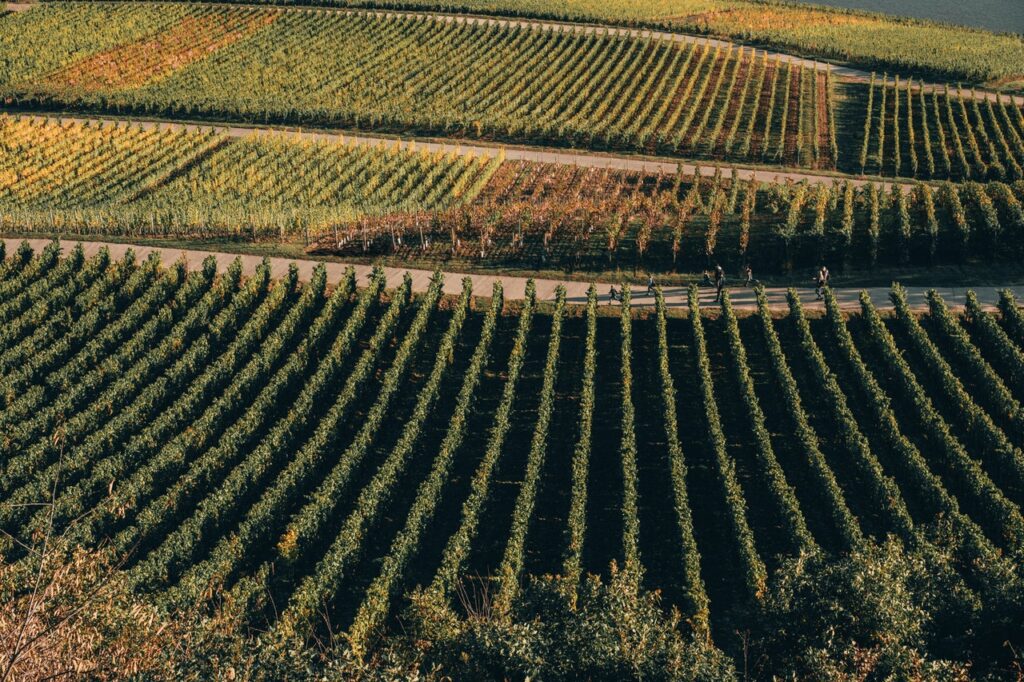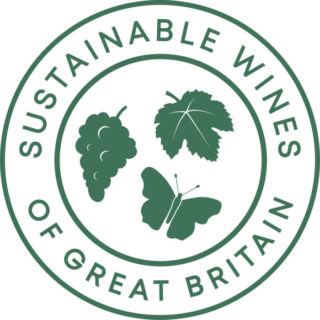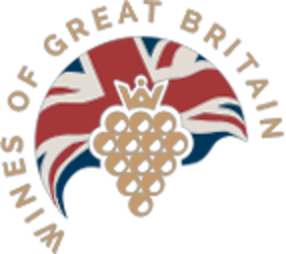
Sustainable Wines of Great Britain: First accredited wines announced

The first wines to be made from Sustainable Wines of Great Britain- (SWGB) certified vineyards and wineries have been released, following the announcement of the founder members last year.
Ten wines from four producers have now received SWGB certification. These wines now have the right to have the newly-approved SWGB Trade Mark on their labels.
The release of the first generation of wines bearing the SWGB Trade Mark is a major achievement for the wine industry of Great Britain and demonstrates both the progress and success of the SWGB Scheme.
The first SWGB-certified wines are:
• Gusbourne Guinevere Chardonnay 2019, Pinot Noir 2019 and Pinot Noir Rosé 2020
• Henners Vineyard Gardner Street Rosé 2020
• Three Choirs canned wine range: Sparkling, White, Rosé and Red
• Yotes Court On the Nod Bacchus 2020 and Best Turned-Out Pinot Meunier Rosé 2020
These wines were required to be made from grapes harvested in the same years from which vineyards and wineries sourced their audit data. Wines made from grapes picked in 2019 and 2020 at a SWGB-certified vineyard, that were made at a SWGB-certified winery, qualify. Currently all of the wines listed above are still wines due to the longer ageing requirements for the majority of sparkling wines produced in Great Britain.
Each of the five wines on this list that were entered into the recent WineGB Awards received medals. Gusbourne’s Guinevere Chardonnay received a Gold medal and the Trophy for the Best Still Chardonnay, while the producer’s other two certified wines received Silver medals. Yotes Court also won a Gold medal for its Best Turned Out Pinot Meunier Rosé and a Silver for On the Nod Bacchus.
There are now a total of 61 members of the SWGB Scheme, which account for some 33% of the area under vine in the UK. They consist of major wine producers through to growers and boutique vineyards as well as contract winemakers. The full list of members can be found here.
A total of 23 vineyards and eight wineries have now achieved SWGB certification. This means that an additional 12 vineyards and five wineries have successfully passed their audit since August 2020.
The certification process entails an annual self-evaluation to monitor progress against guidelines set out to fulfil the SWGB objectives (see below). All certified members must measure their carbon footprint every year using the WineGB Carbon Calculator, a tool specifically designed for the British wine industry that measures carbon sequestration as well as emissions.
Upon joining, then every three years, each self-evaluation score is then rigorously checked and verified by independent auditors and environmental consultancy firm Ricardo PLC.
The SWGB Scheme is backed by a range of leading industry suppliers and supporters, including Waitrose and Marks & Spencer.
A number of these wines will be on show at the WineGB Trade & Press Tasting on 7 September. SWGB accredited producers will be marked accordingly in the tasting booklet, to highlight the importance of sustainability within WineGB and the industry at large.
SWGB would also like to recognise the considerable efforts of its member producers that have gained certification for both their vineyard and winery.
The producers are:
• Camel Valley, Cornwall
• Chapel Down, Kent
• Gusbourne Estate, Kent
• Henners Vineyard, East Sussex
• Nyetimber, West Sussex
• The Winery at Hundred Hills, Oxfordshire
• Three Choirs Vineyards, Gloucestershire
• Yotes Court, Kent and winemaker Defined Wine, Kent
Commenting on the release of the first SWGB-certified wines, Chris Foss, chair of SWGB, said: “I am thrilled to see the first wines bearing the SWGB logo hit the shelves. This is a highly significant event for the British wine industry, as it demonstrates that we now have a fully functioning national scheme that enables our wine producers to clearly demonstrate their commitment to the environment, biodiversity and climate change mitigation. The SWGB Trade Mark on a bottle of wine is a clear indication that producers are striving for environmental sustainability by implementing the SWGB Scheme guidelines.”
CEO of WineGB Simon Thorpe MW, added: “WineGB recognises the importance of sustainability to the British wine industry and that is why we have included it as one of our five strategic pillars. Through SWGB, we aspire to ensure environmental sustainability is at the heart of the English and Welsh wine industry. Congratulations to the four producers who have produced the SWGB Scheme’s first certified wines. I look forward to seeing more wines with the SWGB Trade Mark on their labels as the years go by.”
Beth Kelly MW, wine buyer at Majestic and vice-chair of SWGB, commented: “I am delighted to see the first SWGB-certified wines launching. Having worked on the scheme alongside Chris Foss and some top UK producers over the last three years, it has been fantastic how the industry has embraced the scheme and for so many quality producers to have signed up. I look forward to trying the first releases (especially the wines from Three Choirs, a supplier to Majestic) and hope to see even more wines with the Sustainable Wines of Great Britain logo on them in the future.”
ENDS
Notes to editors:
Founded in January 2019 as a sub-group of trade body Wines of Great Britain (WineGB), SWGB seeks to inform its members on sustainable issues and encourage them to become more environmentally sustainable in their production of wine in the UK. The scheme was set up to create a strong and vibrant community within the English and Welsh wine industry that actively promotes sustainability through information sharing and a certification scheme that is inclusive, effective and well-respected by consumers and trade alike.
The key objectives of Sustainable Wines of Great Britain are:
• Maintain and improve soil health, conserve the environment and promote biodiversity in our vineyards.
• Manage vineyard canopies and yields optimally and reduce (and optimise) pesticide inputs.
• Reduce, re-use and recycle vineyard and winery waste and wastewater.
• Reduce the carbon footprint of both vineyards and wineries.
• Improve winery design to reduce impact on the environment and reduce the energy and water footprint per bottle of wine.
• Reduce the environmental impact of wine packaging.
Guidelines for members can be found here.
Further details about the scheme are on the WineGB website: https://www.winegb.co.uk/home-visitors/sustainable-winegb/
For more information, please contact Chris Foss via swgb@winegb.co.uk and Phoebe French, SWGB Scheme manager, via phoebe@winegb.co.uk
Explore WineGB


